- Home
- slideshows
- miscellaneous
- Marvel Cinematic Universe movies have been on a serious hot streak, and it didn't happen by accident
Marvel Cinematic Universe movies have been on a serious hot streak, and it didn't happen by accident
What led to the stride?

"Captain America: Winter Soldier" (2014)
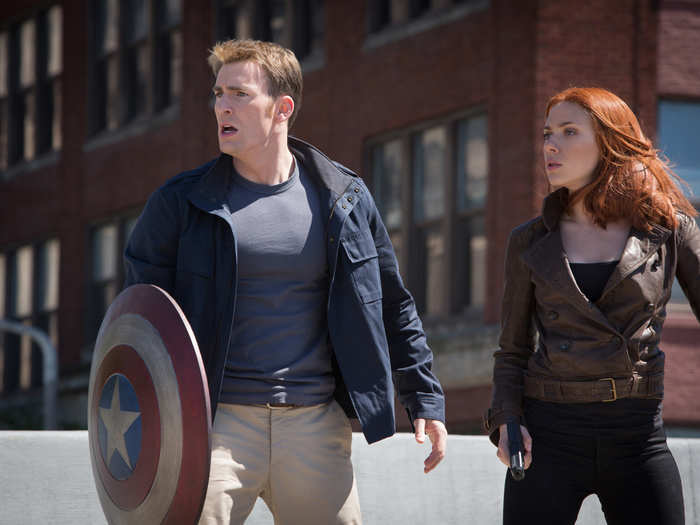
The "Captain America" movies are altogether the strongest standalone trilogy in the MCU, and while each movie is a superhero movie, each individually represents a different genre. And it wasn't meant to be that way.
Originally, the Captain America sequel was going to be another period piece, but flashbacks were abandoned early on in the writing process.
The idea was to make the sequel a political thriller reminiscent of those from the 1970s, like "All the President's Men" and "Three Days of the Condor." In "Winter Soldier," Captain America must fight S.H.I.E.L.D., the agency he's supposed to be working for.
By putting a man who was made by the government for the government in a situation where he has to turn on who he's supposed to be fighting for was a fun twist on Captain America. And it helped make him one of the most complicated and interesting character arcs throughout the films.
"I love that we're doing a sequel to a film that's a completely different genre than the first film," producer Kevin Feige said in 2013. "I think that's fun. And the comics do it all the time."
It worked thanks to the skill of the Russo brothers (Joe and Anthony), who came from the TV directing world. Feige has said they were hired to direct "Winter Soldier" based on an action-packed episode of NBC's "Community" that they directed.
"Captain America: Winter Soldier" received great reviews, and its unlikely superhero spin on a political conspiracy thriller was something critics and audiences loved. The shift in genre did not seem to upset anyone, which helped Marvel learn that it could reinvent a character that already had two movies, such as Thor (more on that in a bit).
"Guardians of the Galaxy" (2014)
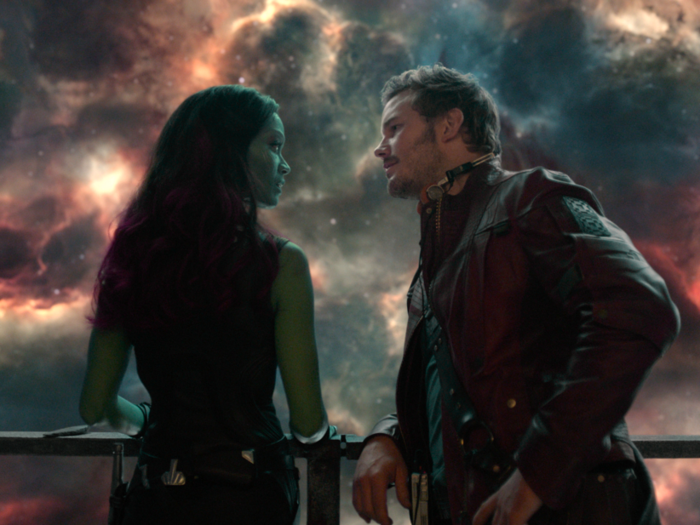
2014 was also a turning point for the MCU because of another movie: "Guardians of the Galaxy."
"Guardians of the Galaxy" came to theaters several months after "Winter Soldier," and contributed to the MCU's new direction into quirky space stuff like "Thor: Ragnarok" and an action-comedy like "Ant-Man."
Without the MCU to back it up, this would've never been made into a movie.
Even the Dan Abnett, the writer of the Guardians of the Galaxy relaunch the films are based on, couldn't believe his work got adapted into a movie of its scale, or at all. The Guardians of the Galaxy are not exactly new in the comics — they've been around since the late 60s. But the team seen in the films (Star-Lord, Gamora, Drax, Rocket, and Groot) made their debut in 2008.
The movie's star, Chris Pratt, was quite a surprising choice as well. He's a movie star now, but just a few years ago, Pratt was known for playing a goofball on the NBC comedy "Parks and Recreation." Pratt's casting, as well as Dave Bautista and the voice actors including Bradley Cooper and Vin Diesel (huge stars who, in any other movie, would be cast as Star-Lord and Drax to get more tickets in the theater), elevated the movie.
The Guardians of the Galaxy gained prominence after the movie came out, and it was really Marvel's first high-risk movie considering they were even less well-known than characters like Thor and Iron Man.
The Guardians are used in the same way in the 2017 sequel. They're funny, they have attitudes, and sometimes they hate each other. This franchise is both light-hearted and laugh-out-loud funny, has a soundtrack from the 70s and 80s, and stars former TV actor Chris Pratt as the unexpected lead. It really made everything that followed possible.
"Ant-Man" (2015)
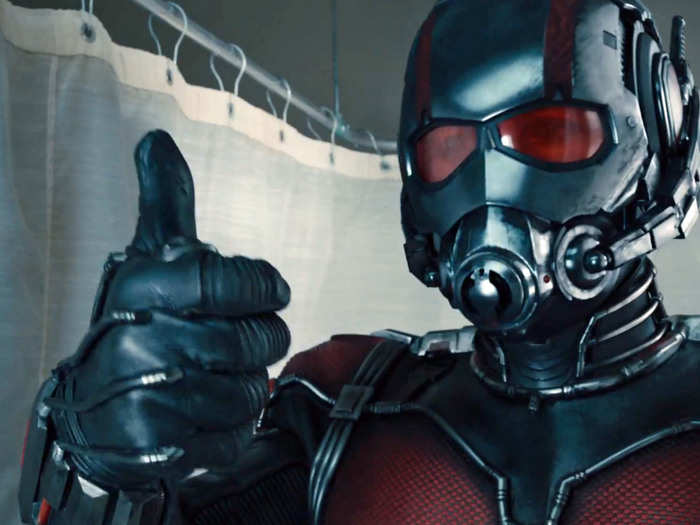
"Ant-Man" isn't perfect, but it certainly had a little place in sparking the MCU winning streak.
It deviated from the more dramatic tone of the other movies by being mostly a comedy. Other films have jokes in them, but definitely couldn't be described as comedies. While it follows a basic, expected formula for a superhero origin story and has a one-note villain, it never takes itself too seriously. After all, Paul Rudd, whose most iconic scene in cinema is as a surf dude in "Forgetting Sarah Marshall" saying, "You sound like you're from London!" is the lead.
It is, after all, a movie called Ant-Man, about a man who can turn into the size of an ant and communicate with ants because of ... technology. It knows how ridiculous the concept of this superhero is, and just goes with it.
"Ant-Man" only suffers because it's holding itself back. By not heightening the absurdity in the way original director Edgar Wright ("Baby Driver," "Scott Pilgrim vs. The World") undoubtedly intended, it doesn't feel as true to the character and the material it's working with.
"Captain America: Civil War" (2016)
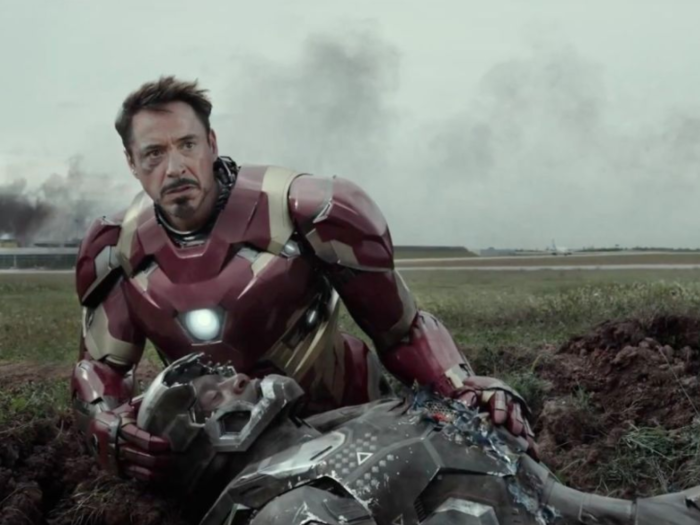
None of the heroes die in "Civil War," but the movie reinforces the real stakes in this world that eventually come into play in "Infinity War."
Everything the heroes do has consequences, even when they're saving the world. The conflict between Steve Rogers and Tony Stark makes sense due to years of build up, relying on the character development in "Age of Ultron" and their standalone movies.
Pitting the two most popular heroes in the franchise against each other doesn't feel like a frenzied device put together to get people to a theater. Instead, it's an earned story that was built up to for several years, like something you'd see play out on a television show.
This was one of the first great examples of the MCU using previous movies to build to a larger story involving careful character development, and it really worked: "Civil War" is universally considered one of the very best of the 19 movies in the MCU.
"Doctor Strange" (2016)
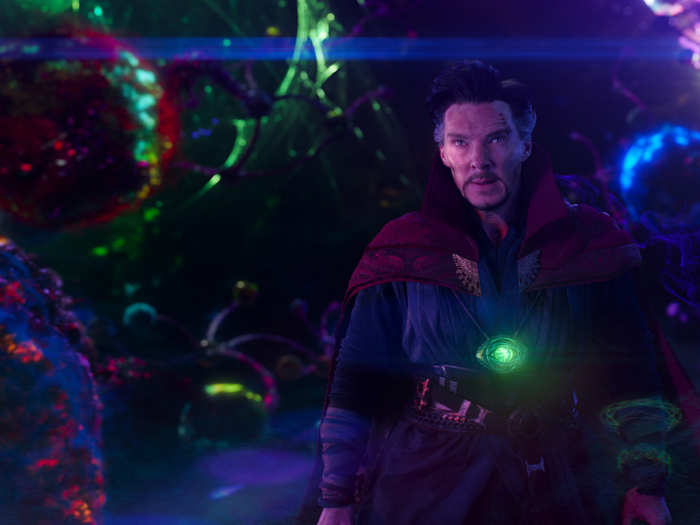
"Doctor Strange" is a — for lack of a better word — strange character. And the movie, which is serious but never quite takes itself too seriously, is aware of that.
It has exciting visuals unlike anything the MCU had done before, compelling source material that experiments with time and universe, and Benedict Cumberbatch is perfectly cast. In fact, Marvel Studios wanted him in the role so badly that it delayed the movie so he would have time to film it.
"Doctor Strange" tests the waters with how experimental and weird these movies can get. Its structure is so unfamiliar compared to the earlier MCU movies, and that will certainly come into play in the next "Avengers" movie, proving once again that all the pieces matter in the MCU.
"Spider-Man: Homecoming" (2017)
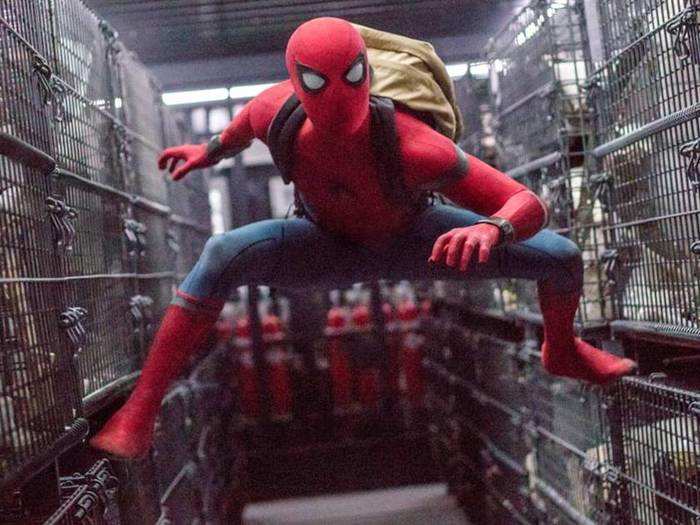
"Spider-Man: Homecoming" does what "Ant-Man" did by making an action comedy, but better.
It skips the origin story, and dives right into the middle of things. It assumes everyone knows how Spider-Man got his powers since there have already been two Spider-Man franchises in this young century, and they were right. We don't need to see a spider bite a teenager again, we get it. We know.
The MCU version of Spider-Man is truly the Spider-Man from the comic books. Tom Holland's Peter Parker is actually a teenager and not a 30-year-old man playing a teenager (sorry Tobey).
Parker is, like most teenagers, kind of annoying. He spits out cheesy one-liners during fights, makes movie references that often prove to be helpful, and he's faced with choosing between saving his friendly neighborhood or getting his homework done. He doesn't preach about great power and great responsibility, which is quite refreshing for a Spider-Man movie these days!
Plus, Michael Keaton's Vulture is one of the best villains in the MCU, which struggled with that aspect for years, even in its better films like "Winter Soldier" and "Civil War."
"Thor: Ragnarok" (2017)
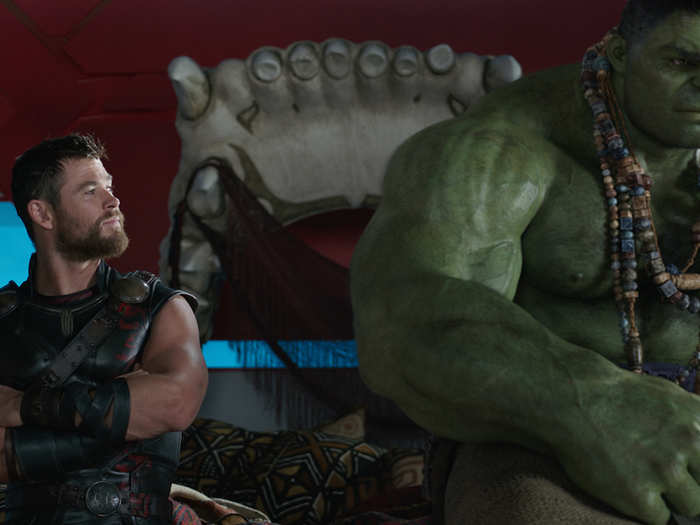
"Thor: Ragnarok" is an exciting, dramatic, well-crafted, and critically acclaimed film with action that makes sense both visually and inside the story it's telling. Heavily inspired by 80s action comedies like "Big Trouble in Little China," it shows Thor and his home of Asgard in a way we never saw before: not boring. The movie, a complete tonal shift from the previous Thor movies, is also one of the funniest comedies of the past decade.
And that's all thanks to the film's director, New Zealander Taika Waititi, who's set a new standard. Before "Ragnarok" came out, Waititi was known for co-directing 2014's "What We Do in the Shadows," a horror comedy that received critical acclaim and cult status.
"Ragnarok," like "Guardians of the Galaxy," takes advantage of the absurdity of space and its own characters rather than trying to make sense of it all. With Waititi's direction, the movie is inclusive and brings some much needed emotional connection to characters including Thor, Loki, Korg, the primary villain Hela, and even the Hulk. It derives its plot from the Thor comics, Norse mythology, and Planet Hulk, a story line that involved the Hulk being on a planet where he is celebrated, rather than feared and ridiculed.
"I think the overall sense that I'm trying to give to the audience and what I want the audience to leave the cinema carrying with them is a sense of joy really," Waititi said in early 2017. "Sometimes I would stop and think, 'I'm doing a movie that's got Thor and Doctor Strange and The Incredible Hulk and Loki and every character is so strange and different.' '[Captain America] Civil War' ... it's just humans, humans with human problems. Ours is creatures and beings and all these sorts of really different characters."
"Black Panther" (2018)
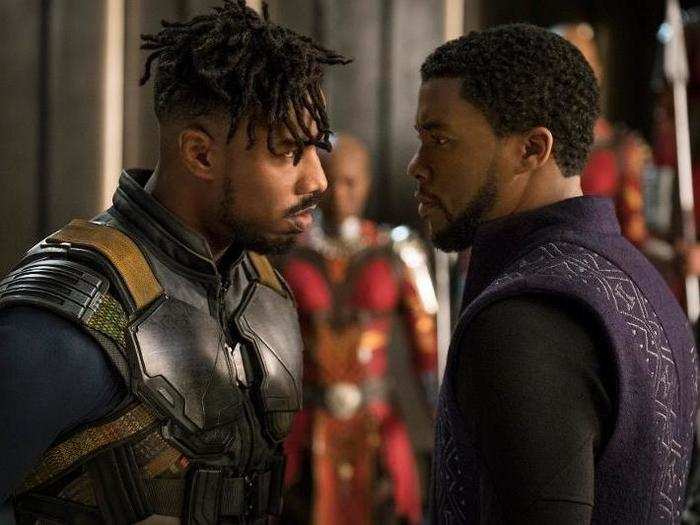
"Black Panther" not only gave the world one black superhero: it gave the world a handful of them, both male and female, each reminding so many people of themselves. It's also an excellent movie that will make you laugh, cry, and cheer. Marvel Studios knew it had a responsibility with its adaptation of "Black Panther," and it went so well because of who they hired, and it marked a huge moment in cinematic history.
"Black Panther," more than anything, is a movie about blackness that just happens to exist in the MCU. It elevated what superhero movies can be just like "Ragnarok," but in a completely different way: it proves that superhero movies can be fun but also have deep cultural meaning.
It highlights black actors who play fully realized characters, celebrates the beauty of Africa and its cultures, and gave black people a blockbuster movie that represented them. And it took long enough.
Directed by Ryan Coogler ("Creed"), from start to finish it's an intense action movie, spy thriller, origin story, family drama, and has more of a political statement than any other movie in the MCU before it. Michael B. Jordan's Killmonger, whose motivations make sense (but not his murderous tactics) intensifies the movie to make it something more high-stakes and emotionally involved.
"Avengers: Infinity War" (2018)
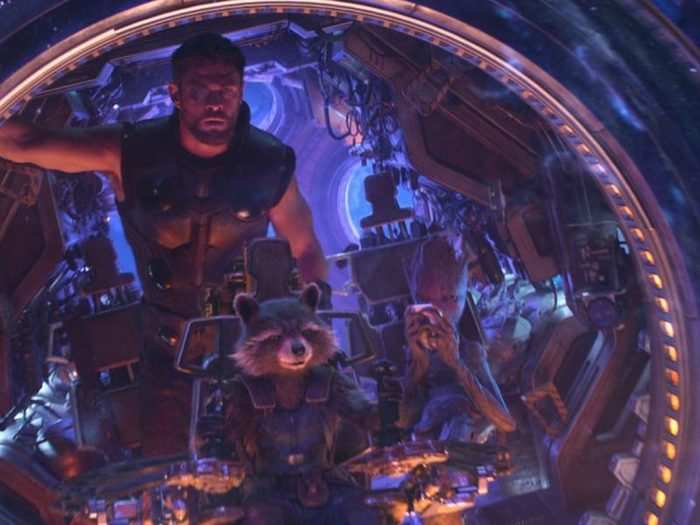
If you think you don't care about any of these characters, that changes in "Infinity War." "Infinity War" makes you feel things you never thought you would watching a studio movie. It completely shattered everyone's expectations by borrowing its ending from the comic book the story is based on. Comic book fans didn't see it coming, because they didn't think the movies would take such a big risk, while movie fans didn't even know it was possible.
While "Infinity War" isn't perfect, it is masterful storytelling considering how many characters and planets it had to work with. It fairly seamlessly weaves dozens of heroes together while introducing new characters and twists. It's clever, traumatic, funny, and thrilling, and it's so action-packed that it's nearly three-hour running time passes by faster than your lunch break.
And in addition to being a great action movie, it has changed things for the MCU's future, and a lot of this wouldn't have been possible without the movies that came before it. "Winter Soldier" and "Civil War" helped build up to a world with major consequences for its heroes; "Black Panther," "Guardians," "Doctor Strange," and "Ragnarok" established fantastical worlds that made their way into "Infinity War."
Where the MCU is going from here:
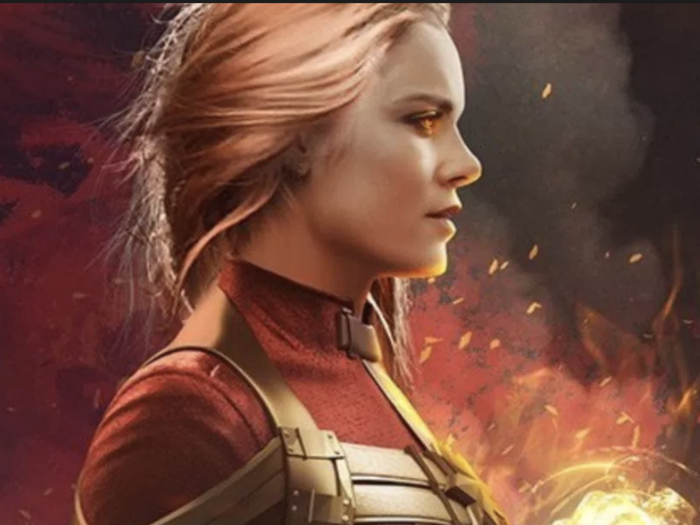
"Ant-Man and the Wasp" (July 2018):
From what we've seen in the trailer, "Ant-Man and the Wasp" will go even further in its comedic tone than the first movie.
"Captain Marvel" (March 2019)
The MCU is basically a television show, and starting in 2019 it's taking advantage of that in a way it hasn't in the past. "Captain Marvel" will take place in the 90s, as a prequel not only starring Captain Marvel, but some long-gone characters including Nick Fury, Phil Coulson, and Ronan the Accuser. By bringing back old characters in a new setting, this could pave the way for more films in the future starring characters who are dead in the current timeline. It also allows actors who might be done with the franchise to make small appearances every now and then. And it allows actors like Lee Pace who plays Ronan the Accuser to have a better chance to show off their characters in a better and new way.
Standalone Black Widow movie:
The one thing that the DCEU has on Marvel is a movie starring a female hero. 2017's "Wonder Woman" was a wonderful movie, and Marvel is following suit, but hopefully not too closely. A script for Black Widow is currently being written, and producer Kevin Feige has stated that Marvel Studios is putting a lot of time and effort into making it right: the character has, after all, been appearing in these movies for almost a decade, so she deserves a proper movie. More than 65 directors have been interviewed to take on the project, and it plans on hiring a female director.
Popular Right Now
Popular Keywords
Advertisement